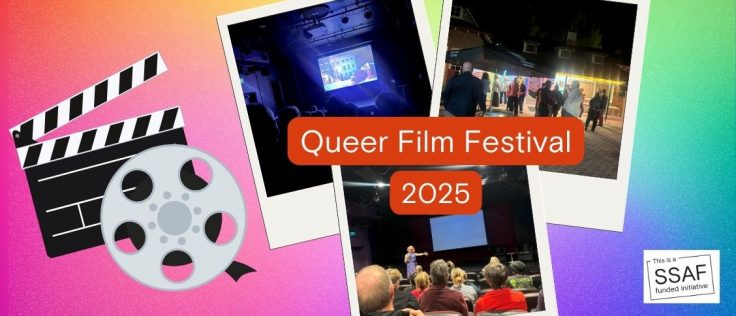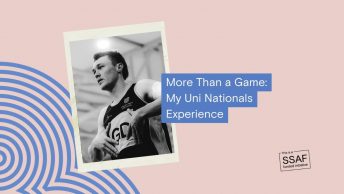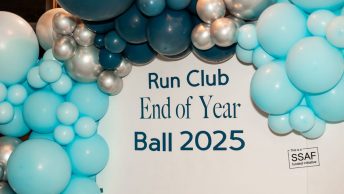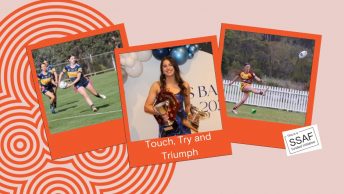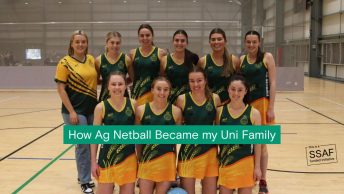Written by Bella Zdrilic
Who:
As a second-year student passionate about advocacy and inclusive spaces, I’m always looking for ways to connect with my community. When the Queer Screen Film Festival appeared in my inbox, I knew I had to attend. The event drew a mix of students, staff and locals, all united by a shared commitment to LGBTQIA+ visibility.
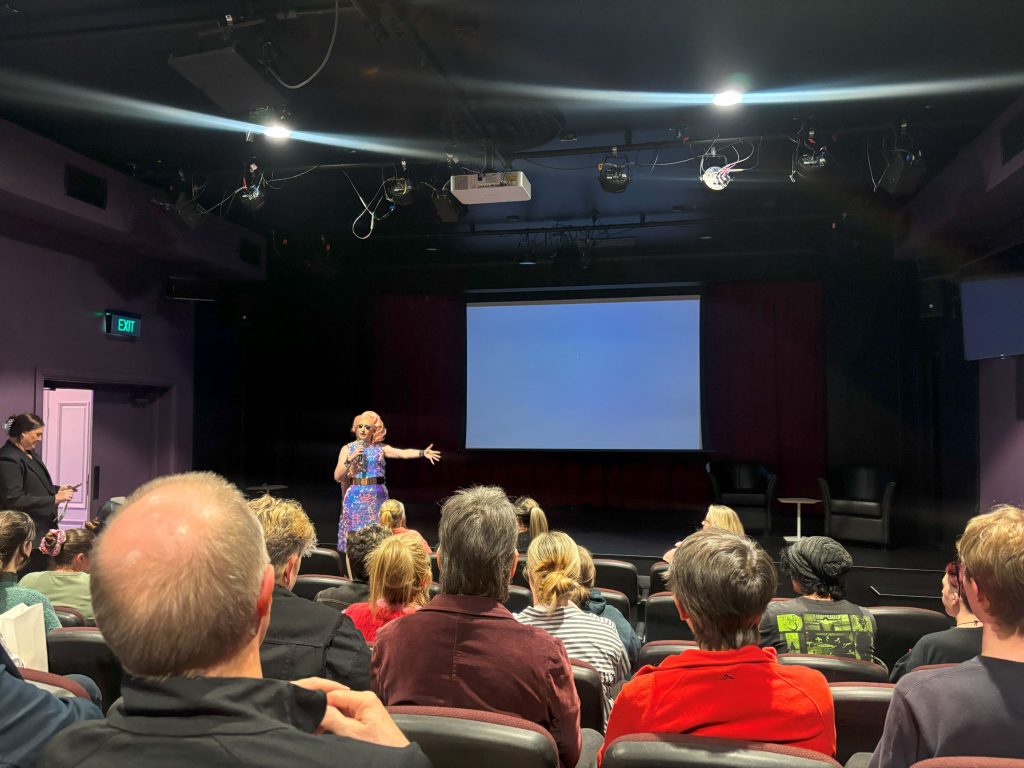
What:
The festival showcased eight short films exploring LGBTQIA+ experiences, from heart-warming romances to raw journeys of self-discovery. Each film tackled themes like identity, resilience and belonging, but two stood out:
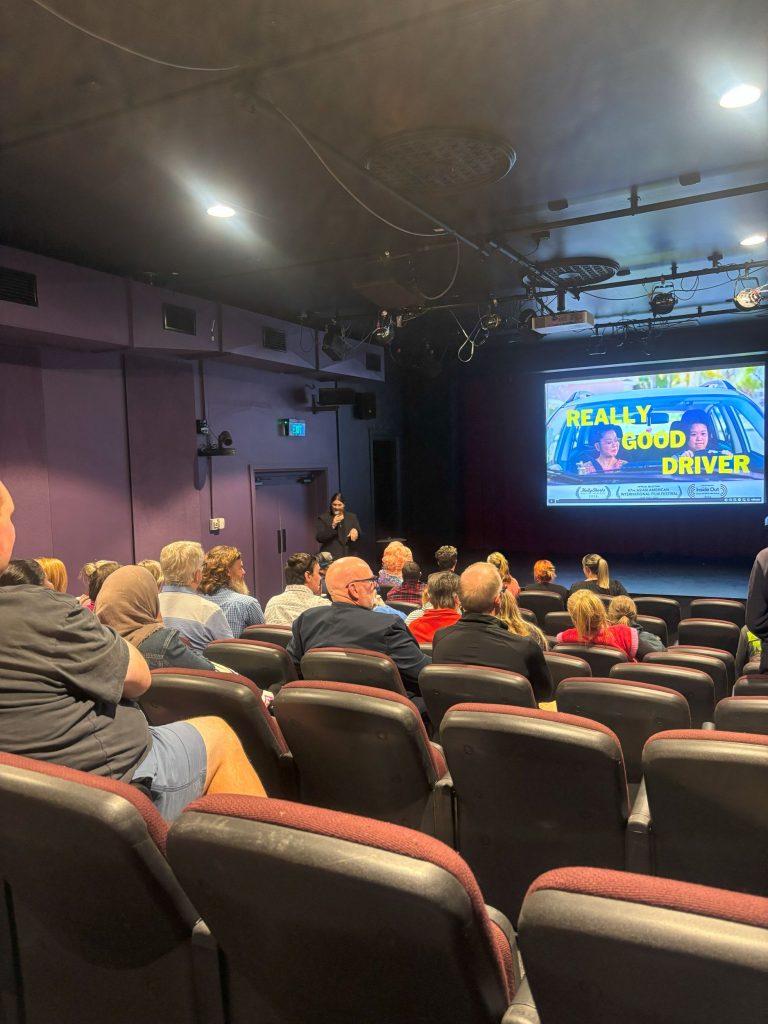
- “One Day This Kid” – this film follows a first-generation Afghan Canadian boy navigating queerness under the weight of cultural expectations. Small moments-a hesitant glance at a classmate, a tense family dinner-build into a heart-breaking journey of self-acceptance.
- “Is Gay Marriage Next?” – this documentary-style short film follows a lesbian woman reflecting on Australia’s marriage equality journey. Archival footage of the 2017 postal vote-which studies show worsened LGBTQIA+ mental health due to homophobic rhetoric contrasts with her personal story: a mother’s initial rejection, the relief of legal recognition, and her call to action: “That’s how you thank people-you pick up the fight”.
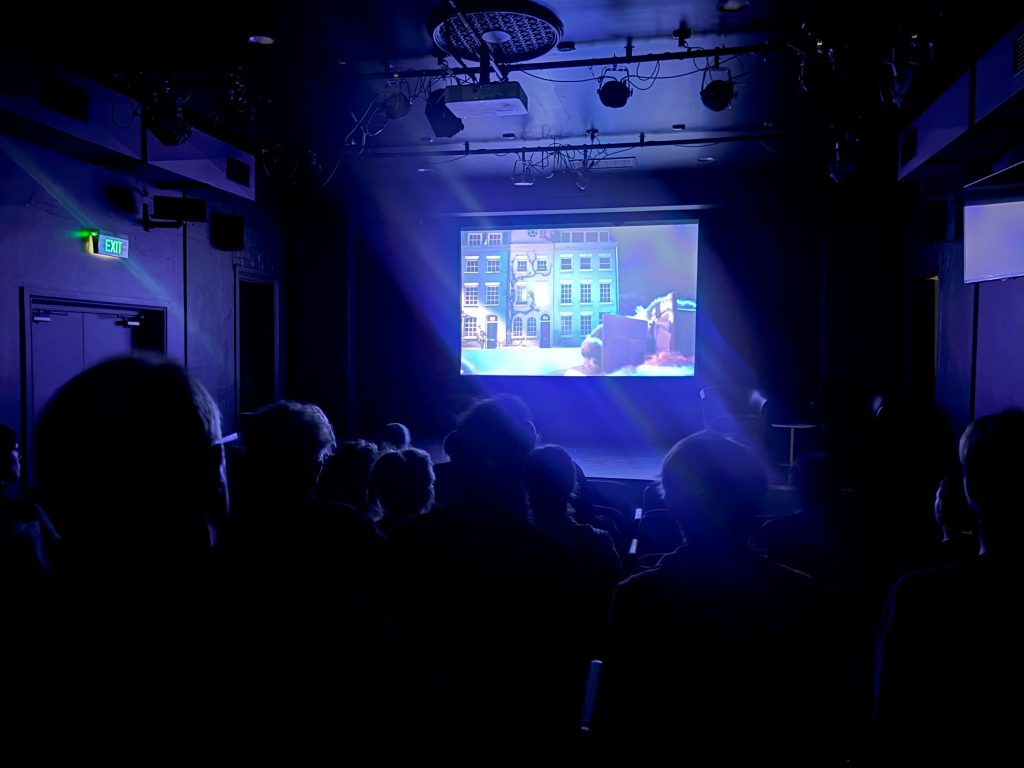
The night wasn’t just about films. It included a photography exhibition and drag performances (as part of the broader 2025 festival program), creating a vibrant, multi-layered celebration of queer creativity.
Where:
While the 2025 festival expanded to Charles Sturt’s Port Macquarie, Orange and Wagga Wagga campuses, I attended the Bathurst screening-a reminder that regional communities are actively carving out spaces for queer joy. The on-campus venue buzzed with energy, proving that inclusivity thrives even outside big cities.
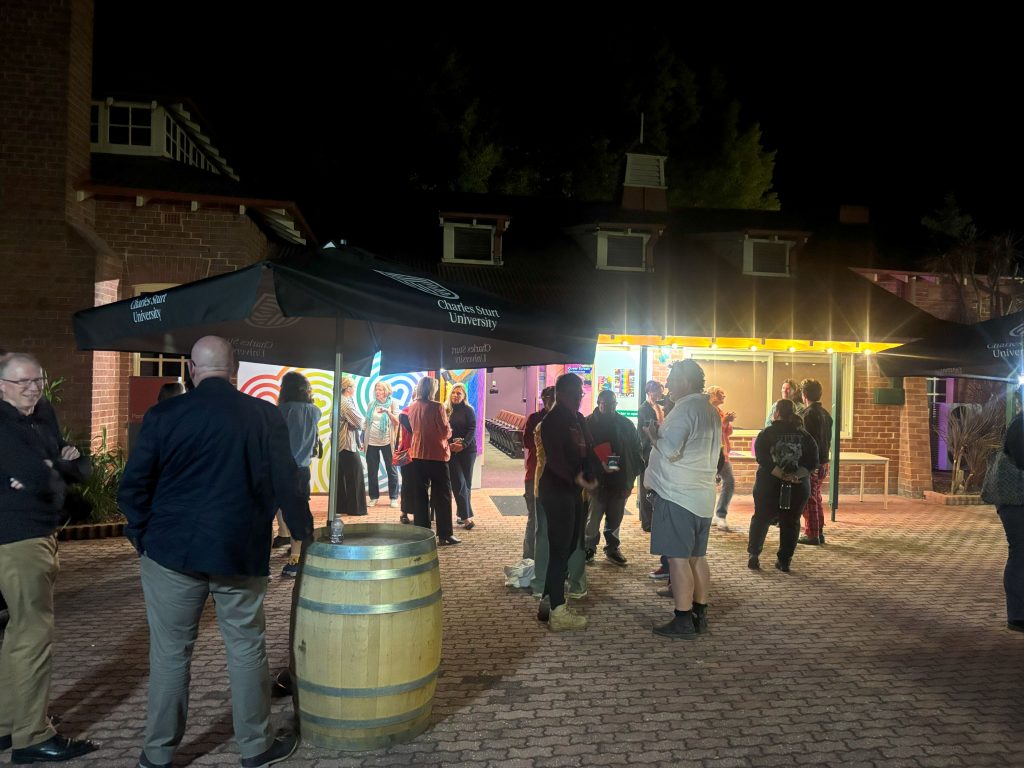
Why It Matters:
This festival wasn’t just entertainment; it was a radical act of visibility. For many attendees, seeing their stories reflected on screen was validating. It also highlighted Charles Sturt’s commitment to its values. By hosting events like this, the university fosters real-world inclusivity, bridging gaps between students, staff and the wider community. In regional areas, where LGBTQIA+ resources can be scarce, such initiatives are lifelines for many.
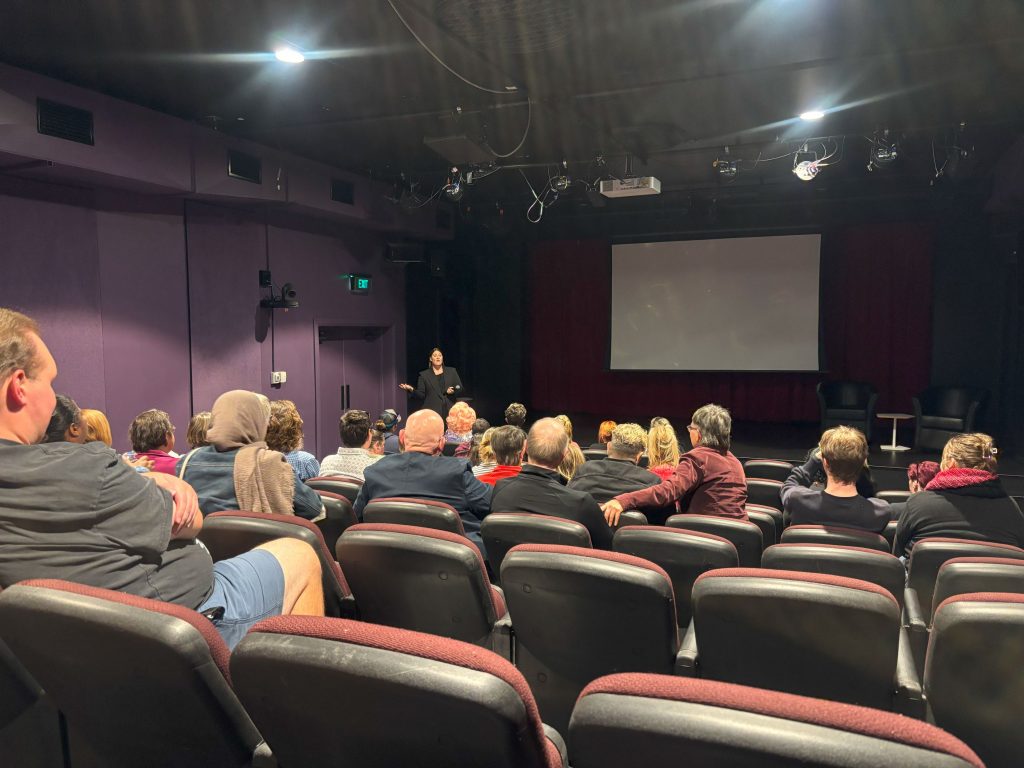
The Bigger Picture:
Events like the Queer Screen Film Festival do more than share stories – they build solidarity. I watched strangers bond over shared laughter and tears, and left feeling hopeful about our collective power to create change.
How to Get Involved:
If you’re a student looking to connect:
✅ Check the Charles Sturt Events page – the festival returns annually, often with new themes.
✅ Join the Ally Network – they champion similar initiatives year-round.
✅ Attend local queer events – even small gatherings strengthen community ties.
Bring friends, stay curious, and remember: your presence matters. Whether you’re LGBTQIA+ or an ally, showing up signals that regional spaces can, and should, be inclusive.
Charlie blog is a SSAF funded initiative.


